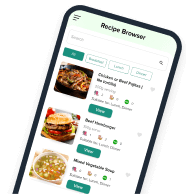To Fast or not to Fast
This question often arises in discussions about diet and weight management, especially when considering the stages of fasting. As a nutritionist in private practice, I’ve always held the belief that no single diet fits everyone. Individual dietary plans should be precisely tailored to meet personal lifestyles, ensuring they are sustainable beyond achieving initial weight loss goals. This means creating flexible meal plans that don’t leave clients feeling deprived, but rather can be maintained comfortably over the long term.
Despite the popularity of intermittent fasting and its benefits for quick weight loss, thanks to fewer calorie intakes and hormone function optimisation like reduced insulin levels and increased growth hormone levels, I remain cautious. Although effective for some, intermittent fasting isn’t always sustainable. Many struggle with the restrictive eating windows, often overindulging during their permitted times, which doesn’t foster long-term healthy eating habits. Consequently, once normal eating resumes, the weight tends to return.
What is Fasting?
Fasting is when you choose not to eat or drink for a specific period. It’s a practice that people often do for health, religious, or cultural reasons. During a fast, you might limit yourself to small meals or water or certain drinks. The duration of a fast can vary, some last just a few hours, while others can go for a day or more.
Stages of Fasting by Hour
Stage 1: Fed State (0-3 hours)
Right after you eat, your body enters the fed state. During these first few hours, it’s busy digesting your food and absorbing nutrients. Insulin levels increase to handle the glucose coming in from your meal, giving your cells a steady flow of energy.
Stage 2: Early Fasting State (3-18 hours)
As you transition into the early intermittent fasting times, your body begins to tap into its glycogen stores for energy. This is when many people start to feel the first signs of hunger, but it’s also when the body starts to make important hormonal adjustments that can lead to health benefits.
Stage 3: Fasting State (18-48 hours)
During the fasting state, your body shifts its focus from using glycogen to breaking down fat stores for energy. This is where the magic happens; fat burning and weight loss. It’s also when you might start to notice increased mental clarity and a sense of well-being.
Stage 4: Long-term Fasting State (48+ hours)
In the long-term fasting state, your body has fully adapted to using fat as its primary energy source. This stage can lead to profound changes in metabolism and health, including potential increases in human growth hormone and improvements in heart health.
To maximise the benefits of fasting, tailor your approach to fit your lifestyle and health goals effectively. At ME for Me, we advocate for a personalised approach, ensuring that fasting is a sustainable and enjoyable part of your life.
In Summary
A healthy relationship with food is one that allows you to eat a wide range of foods without restriction of food groups. This is far more important than rapid weight loss and I personally believe it is the lifestyle change and journey that really defines healthy eating habits, not the number on the scale. Even with all the knowledge and facts I have surrounding these fasting techniques, I still firmly believe that smaller, more regular meals throughout the day help balance the blood sugars within the body allowing you to reach your weight loss goals without depriving your body throughout the day.
As mentioned previously, different eating regimes work differently for each individual, so everyone needs to follow an eating plan that they feel works for them. If you are thinking of going down the fasting route, I often suggest having an early dinner at 6pm followed by breakfast at 9am which then allows the gut to rest for 15 hrs without having to skip any important meals throughout the day.
I hope this has given you some food for thought. Please remember that the most important thing is to nourish your body in a way that makes you the healthiest version of yourselves.
Love Monique X







